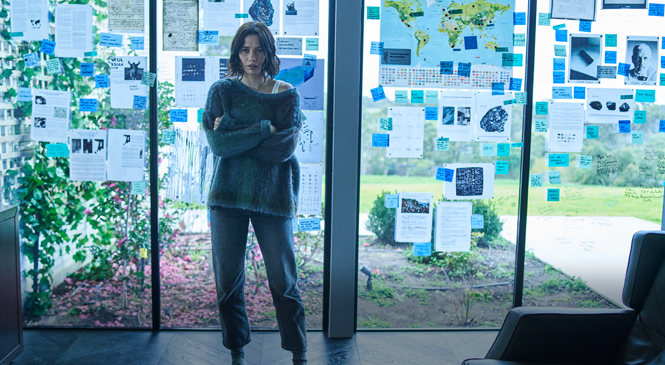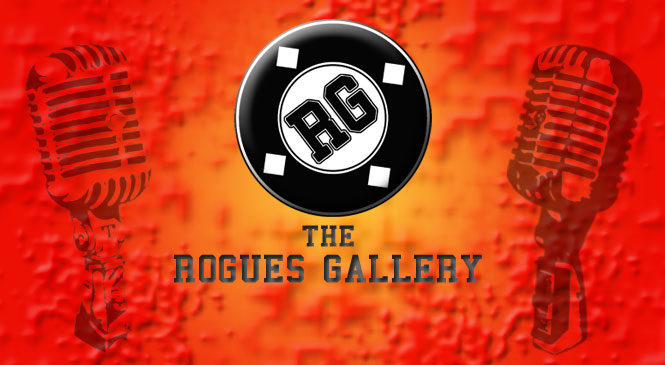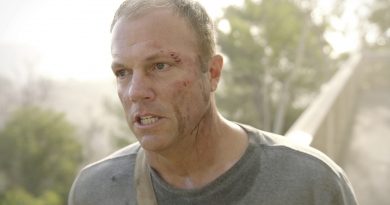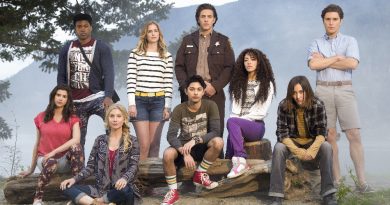Film Review: MONOLITH Sets Up Nicely, but Doesn’t Quite Pay Off

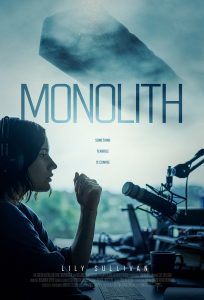 Monolith (2024)
Monolith (2024)
Screenplay by Lucy Campbell
Produced by Bettina Hamilton
Directed by Matt Vesely
R, 1hr 34m
It’s one of those stories that you don’t expect to enjoy, but then it’s one of those stories that ultimately doesn’t quite get the ball over the goal line.
Monolith follows a newly minted podcast journalist (Lilly Sullivan) as she hides out at her parents’ home while trying to rebuild her career. Her disgrace comes after a story she published went sideways on her, as she apparently didn’t vet all of her sources properly. Now she has to carve out a new space for herself, and she finds herself hosting a new true-life mystery podcast without any clue how to start or what topic to cover.
And then she gets an e-mail.
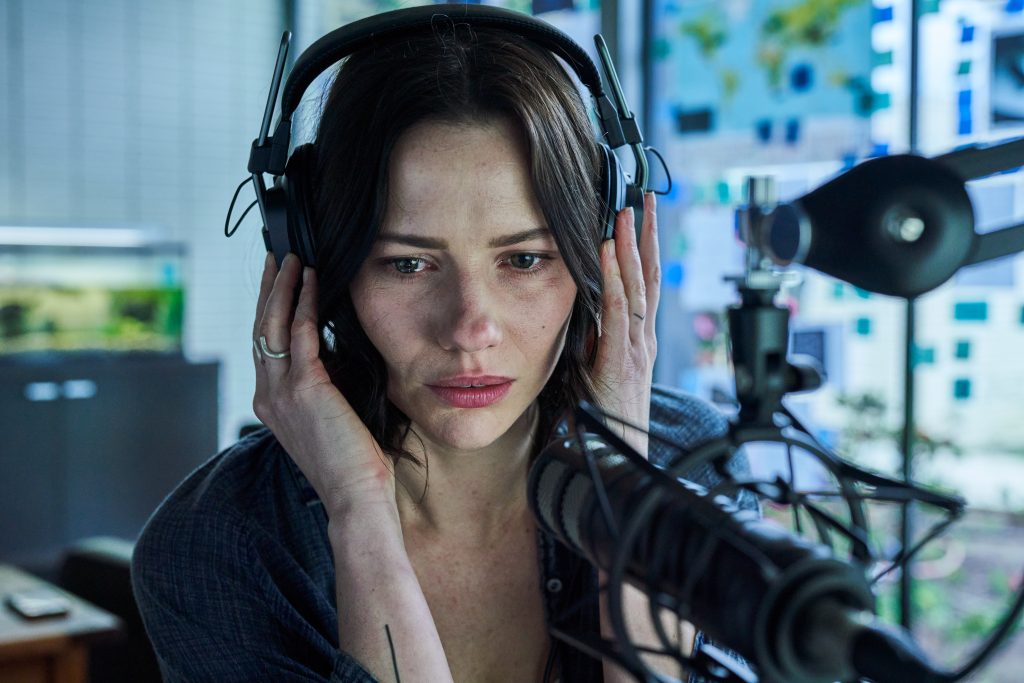
This e-mail sends her down the trail of a series of mysterious incidents wherein a strange black brick suddenly appears in people’s lives, without any clue as to how they arrived or what purpose they serve. Only that each one of them has unique properties, some of which might be directly tied to the recipient of each brick. And as “The Journalist” — she’s never given a name — delves deeper into the mystery, she starts to unravel an even bigger mystery. What are these bricks? Are they magic? Extra-terrestrial? Ordinary slabs of masonry? And what connection do they have to her own past?
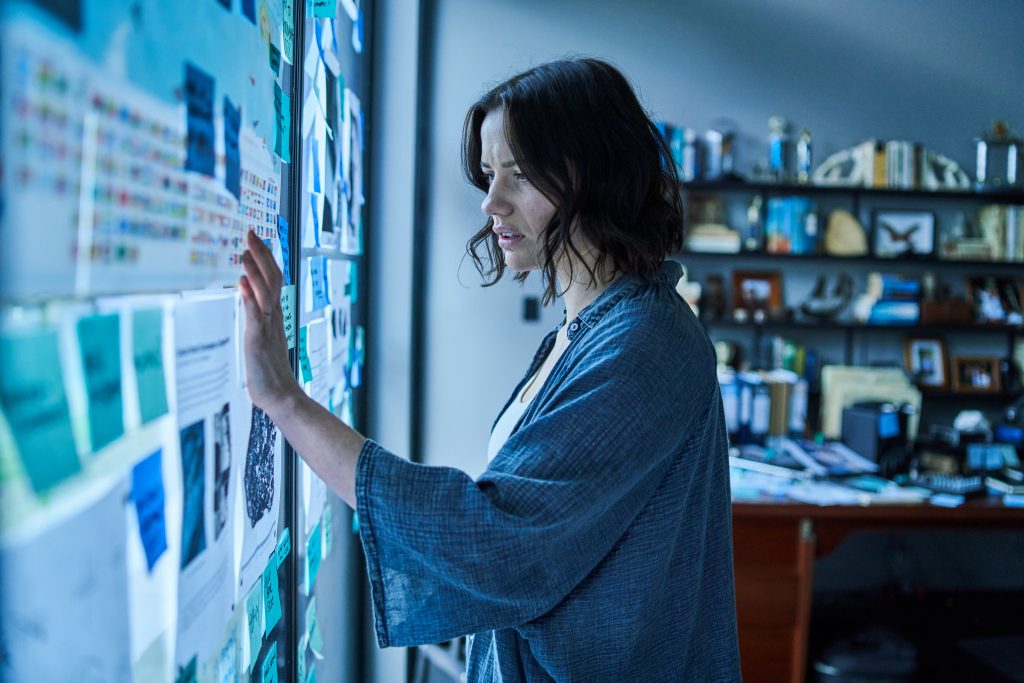
In a post-pandemic world, this story resonates with the feelings many of us experienced. The isolation and paranoia grow as Sullivan’s character puts together more and more information, building a wall of clues that could rival anything Charlie Day put together. It’s her own “Wall of Weird” that serves as a way to keep the audience firmly on the journey of discovery that she’s on — and with the movie being shot essentially in chronological order, Sullivan gets plenty of opportunity to lean into both the isolation and paranoia gradually as the wall gets more details added to it.
It is most definitely a character study more than it is a science fiction or horror story, and Sullivan delivers a compelling performance that keeps your attention and has you anticipating what may happen next — and it’s just as likely you’ll be wrong in that prediction until the “aha” moment that brings it all together.
Except it doesn’t quite.
There’s a missed opportunity here. The story starts to tease us with the question of whether this is all happening in The Journalist’s head. Could she be slowly losing her mind in the rabbit hole of this mystery? Are these “black brick encounters” all just a conspiracy of people out to destroy what’s left of her life? Could she be obsessing over a memory that drives her into delusions? Those questions are teased, but then the ending gives us an answer and sets up a larger scenario that we don’t get to explore. It’s a very long first act of … something. And I’d like to see act two, but I don’t think there’s any more story. Lucy Campbell gives us an interesting setup and some questions about our protagonist, but ultimately, it doesn’t really deliver the payoff it’s been setting up.
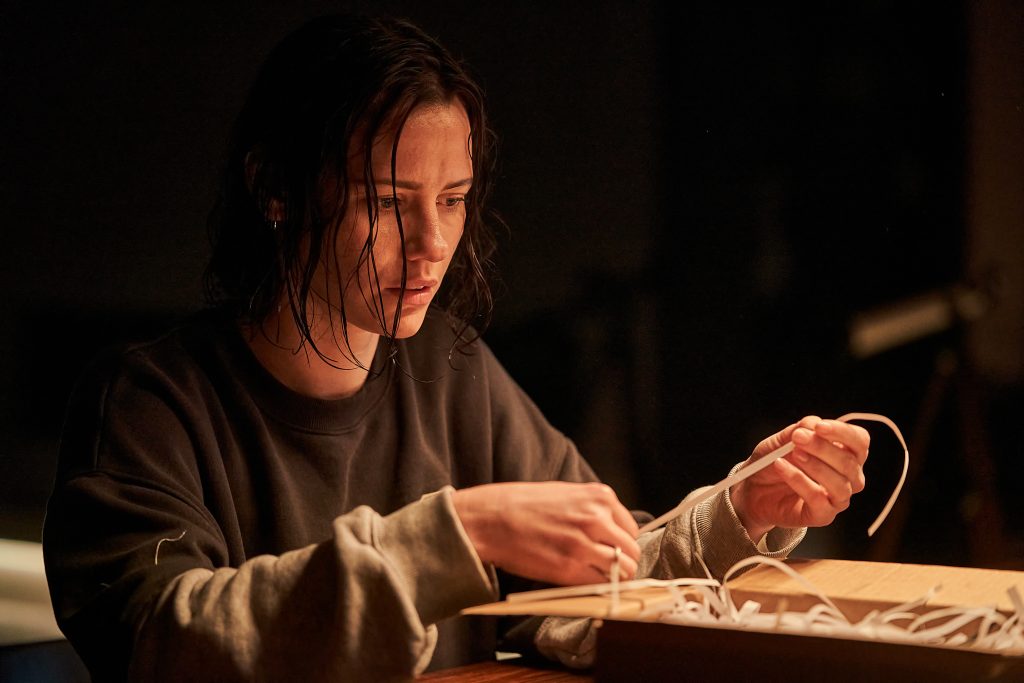
From a conceptual perspective, I can see why this would play well at the film festivals, but narratively it’s a little disappointing when we finally get to the root of the mystery and it just starts to swerve into something weird and then it just stops. We’re left with a pretty burning question, one that doesn’t really have much of a preliminary. There were a few places where the ending could have been earned a little more, maybe with an e-mail or a phone conversation. The clues we did get flow nicely one to the other, but there’s not much to lay a foundation for what happens in the last ten minutes.
Having said that, I still think it’s an interesting project, and it’s worth a look. Sullivan delivers a tightly-wound performance that draws you in and centers the entire story on The Journalist. Her collaboration with director Vesely is one that really pulls together and gives her performance room to breathe. I just wish it hadn’t taken so long to get where we were going, mainly because it feels like there’s a lot of story left to tell and we haven’t quite arrived yet. The Journalist is just at a point where things could get really creepy, depending on the answer to the question we’re left with at the end.
The other performances — the disembodied voices on the phone and computer calls — add to the overall effect as well. They give us glimpses into the bigger picture that The Journalist is trying to assemble, while at the same time they hover just out of reach and give us mere hints as to the nature of the various relationships Sullivan’s character sees. Even though you can’t see them, the people on the other end of the device gives us a general understanding of why she’s having to start over as a journalist. It also allows for some creative ways to inject exposition without getting clunky.
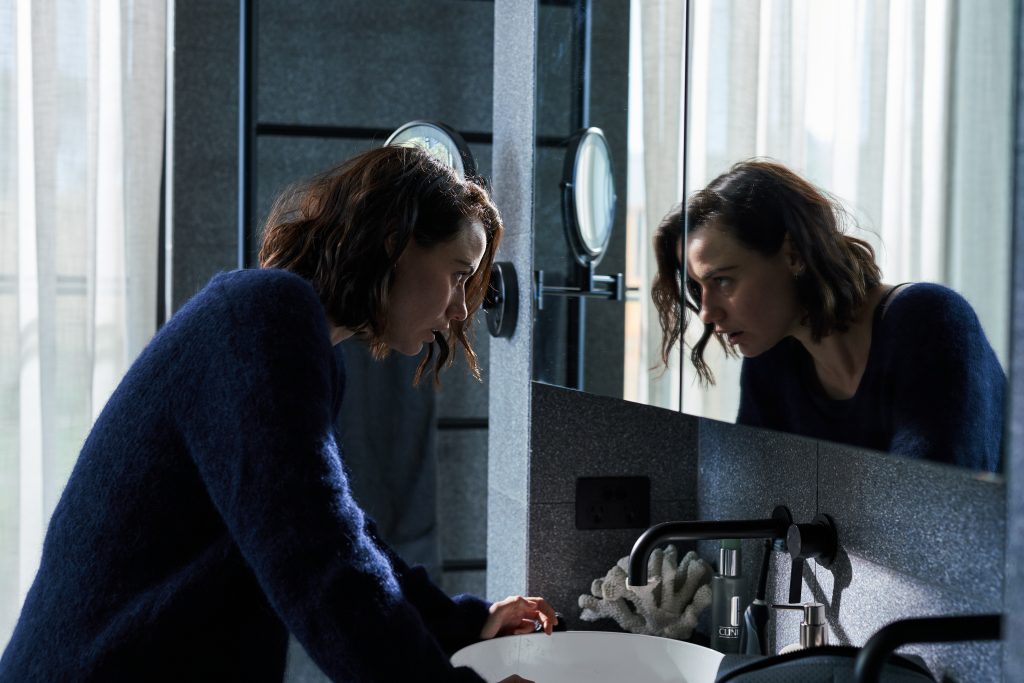
Now, the fact that the audience is left holding that bag means that you can interpret the last few scenes any way you want, and there’s some merit to that kind of storytelling. But for a lot of people, it may end up unsatisfying. “That’s it?” you may ask, and you would be justified. But sometimes a storyteller makes a choice that we have to live with even though we don’t like it, and Lucy Campbell made that choice here. It would have been relatively easy to drop a hint or two throughout the script that would give us the means to draw a conclusion, but the opportunity is missed, even though it’s a clever script.
That’s the frustrating thing. This has so much potential, and I liked what I saw. It’s just that as a writer, I think there’s needs to be maybe five more minutes at the end to give us just a little more clarity.
Despite its feeling somewhat incomplete, it’s a good piece. Michael Tessari’s cinematography gives us a color palette that most of the time teases that melancholy in The Journalist’s life. There are occasional bursts of warmer tones, but overall it’s cold and grey, which works to enhance her sense of isolation and lack of purpose. I think that this movie would have played very differently had it been warmly lit throughout. Plus, it connects with the dark and gloomy mystery of the black brick, which has Sullivan’s character getting more agitated the further we go.
Overall, it’s not a bad way to spend an hour and a half, despite the frustration you might experience at the end. It’s not a franchise. It’s not a $300 million superhero popcorn flick. It engages the brain, makes you think, and that’s a welcome alternative to smash-bang-pow.
![]()

